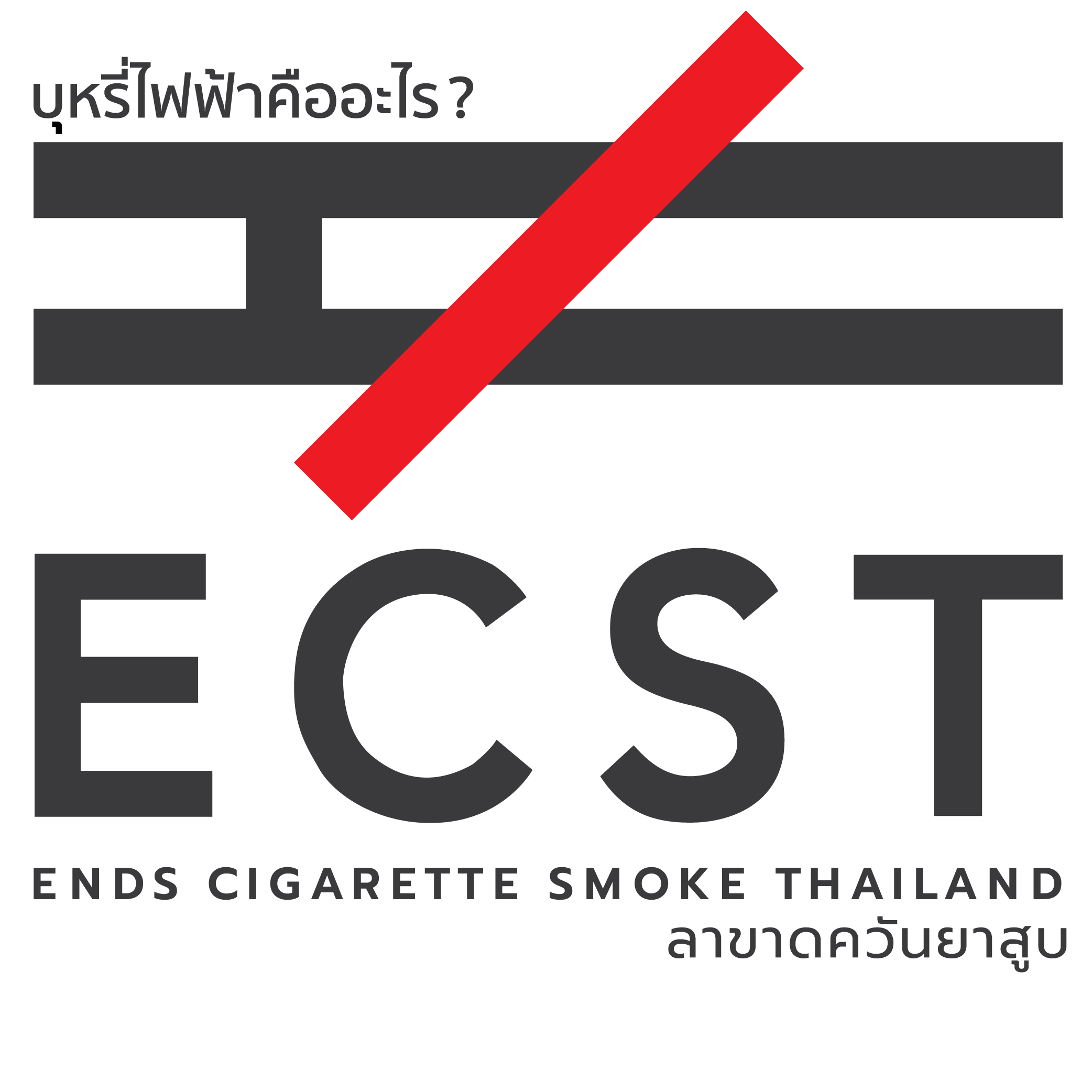Thailand asked to consider scientific studies on vaping
About 40 percent of Thai males are at risk of suffering from illnesses caused by the smoking epidemic.
BANGKOK, Thailand - A consumer advocacy group has asked the government of Thailand to follow the lead of Hong Kong in looking at scientific studies as the basis for ending the ban on smoke-free nicotine products such as e-cigarettes, heat-not-burn tobacco products (HTPs) and snus.
Asa Ace Saligupta, who runs consumer group ENDS Cigarette Smoke Thailand, said the Hong Kong Legislative Council (Legco) decided to suspend the discussions on the proposed ban on vaping products, after some members of Legco’s Bills Committee on Smoking cited scientific studies showing that e-cigarettes, HTPs and the likes have much lower levels of toxicants compared to combustible cigarettes.
He noted that after nine meetings, including three public hearings, the committee which was established in March 2019 decided to end the discussions on the vaping ban on June 2, 2020. The members of the committee also expressed concern that an outright ban would create more illegal channels and that the products could end up in the hands of underage users.
"The Hong Kong experience sets forward a good example of listening to opinions and engaging all parties involved, including the public sector—something that the policymakers in Thailand have avoided so far," Saligupta said.
Saligupta said his group will petition the Thai government to also set up a committee to study e-cigarettes and find suitable control channels that will enable adult Thai cigarette smokers to find safer alternatives.
“Instead of using electronic cigarettes as a tool to create fear by creating a discourse on children and youth or Covid-19, we want to call on the Thai government to set up an independent committee to seriously study the science, commercial aspects, and regulatory framework for electronic cigarettes like Hong Kong and many other countries," he said.
Health experts and tobacco harm reduction advocates who joined the recent virtual Global Forum on Nicotine said the 1.1 billion smokers around the world should be given an opportunity to access less harmful alternatives. E-cigarettes, HTPs and other electronic nicotine delivery systems are considered a part of tobacco harm reduction—a public health strategy which aims to provide alternatives to reduce risks caused by smoking cigarettes.
Several scientific studies in other countries found that e-cigarettes are 95-percent less harmful than smoking, as the harmful chemicals present in cigarette smoke are either not in EC vapor or only found at much lower levels.
The Global Burden of Disease Study of the World Health Organization estimated that smoking caused 7.1 million people to die prematurely in 2018 and was responsible for an additional 1.2 million deaths from second-hand smoke.
Saligupta said that in Thailand alone, lifting the ban on e-cigarettes, HTPs and the likes will help smokers representing more than 20 percent of the country's population switch to safer alternatives. About 40 percent of Thai males are at risk of suffering from illnesses caused by the smoking epidemic.
Saligupta, however, said that some anti-smoking campaigners have created obstacles in applying the tobacco harm reduction principle in many countries by maintaining a narrow perspective that stubbornly refuses to embrace safer alternatives. He said that despite the scientific evidence and the frightening death toll from smoking, the government department mandated for tobacco control in Thailand chooses to emphasize extreme methods such as banning the import of e-cigarettes.
"This has created other problems such as the smuggling of non-standard and therefore uncontrolled products into the country, thereby depriving the rights of users of electric cigarettes and leading to the inability to control the access of youth to these products," he said.
Saligupta said that in advanced countries which saw a substantial decline in smoking prevalence such as Sweden, Norway, Iceland and Japan, smokers have the option to switch to alternative products. This led world-class experts to believe that cigarettes will disappear in these markets soon.
He said the National Statistical Office figures for 2017 indicate that around 43 percent of smokers in Thailand say they never think of quitting but about 20 percent have tried unsuccessfully to stop smoking at least once.
Saligupta said this is because Thailand still adheres to the traditional ways of quitting smoking, without evaluating the science behind alternative options or reviewing the results of people who try to quit smoking. "Most importantly, they have never listened to the opinions of smokers or electronic cigarette users, or people who see things differently," he said.
Saligupta, however, said there are signs that this will change soon. "We believe that the Poomjai Thai party, headed by Mr. Anuthin Charnvirakul, Minister of Public Health, has the support of MPs from many other political parties who want to see new ways to deal with smoking problems. The Prime Minister himself has recently said that when the world changes, we also have to change," he said.
About ECST
Ends Cigarette Smoke Thailand is a consumer advocacy organization that strives to promote tobacco harm reduction in the face of blanket bans, fines and jail time for consumers who wish to use alternative nicotine consumption products, specifically Electronic Liquid Vaporizers.
Press release distributed by Pressat on behalf of JFPRC, on Wednesday 24 June, 2020. For more information subscribe and follow https://pressat.co.uk/
E-Cigarettes Vaping Vapes Tobacco Harm Reduction ECST Smoking Smokers Heated Tobacco Products Business & Finance Government Health
You just read:
Thailand asked to consider scientific studies on vaping
News from this source:



